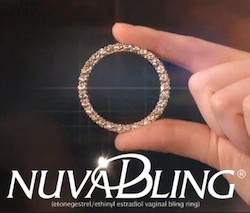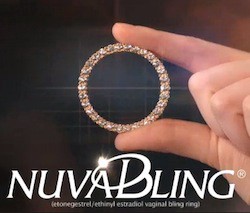A Thing You Should Probably Read If You Use the NuvaRing


Vanity Fair published a long report on the NuvaRing in the latest issue, and they’ve put up an online summary that includes some horrifying figures and anecdotes about the female contraceptive, which has allegedly caused blood cots in “thousands” of users:
As NuvaRing’s manufacturer, Merck, which made $623 million in NuvaRing sales in 2012, is facing roughly 3,500 lawsuits against it, Brenner asks why, despite evidence of serious risk, this potentially lethal contraceptive remains on the market. Would a young woman use NuvaRing, Brenner asks, if she knew that the F.D.A. had determined that there was a 56 percent increased risk of blood clots when it was compared with birth-control pills using earlier forms of progestin? Karen Langhart, the mother of Erika Langhart, a 24-year-old who died of a pulmonary embolism on Thanksgiving Day 2011 after using NuvaRing for approximately four years, tells Brenner, “I want to warn every mother and every daughter: do not use the product that killed my child.”
And from a 2009 Mother Jones report on the same issue:
NuvaRing actually contains a lower hormone dose than most oral contraceptives, a fact its ads emphasize. But while birth control pills lose up to half their hormones in the digestive tract, the ring’s dose is absorbed directly into the blood. Its package insert says there are no data on whether this route makes NuvaRing any riskier than taking pills. But that, say lawyers suing the company, is because Organon never studied the question before it marketed the ring. Nor did the FDA demand it — the agency based its approval largely on studies involving pills.
I’ve used the NuvaRing for close to five years. Anyone else out there second-guessing their commitment to this method?